Bespoken Word – have we got strong wrong?
In the wake of celebrating the fastest, most skillful riders at the World Championships Guy Kesteven wonders if we’re actually looking at the wrong criteria when it comes to the ‘strongest’ riders
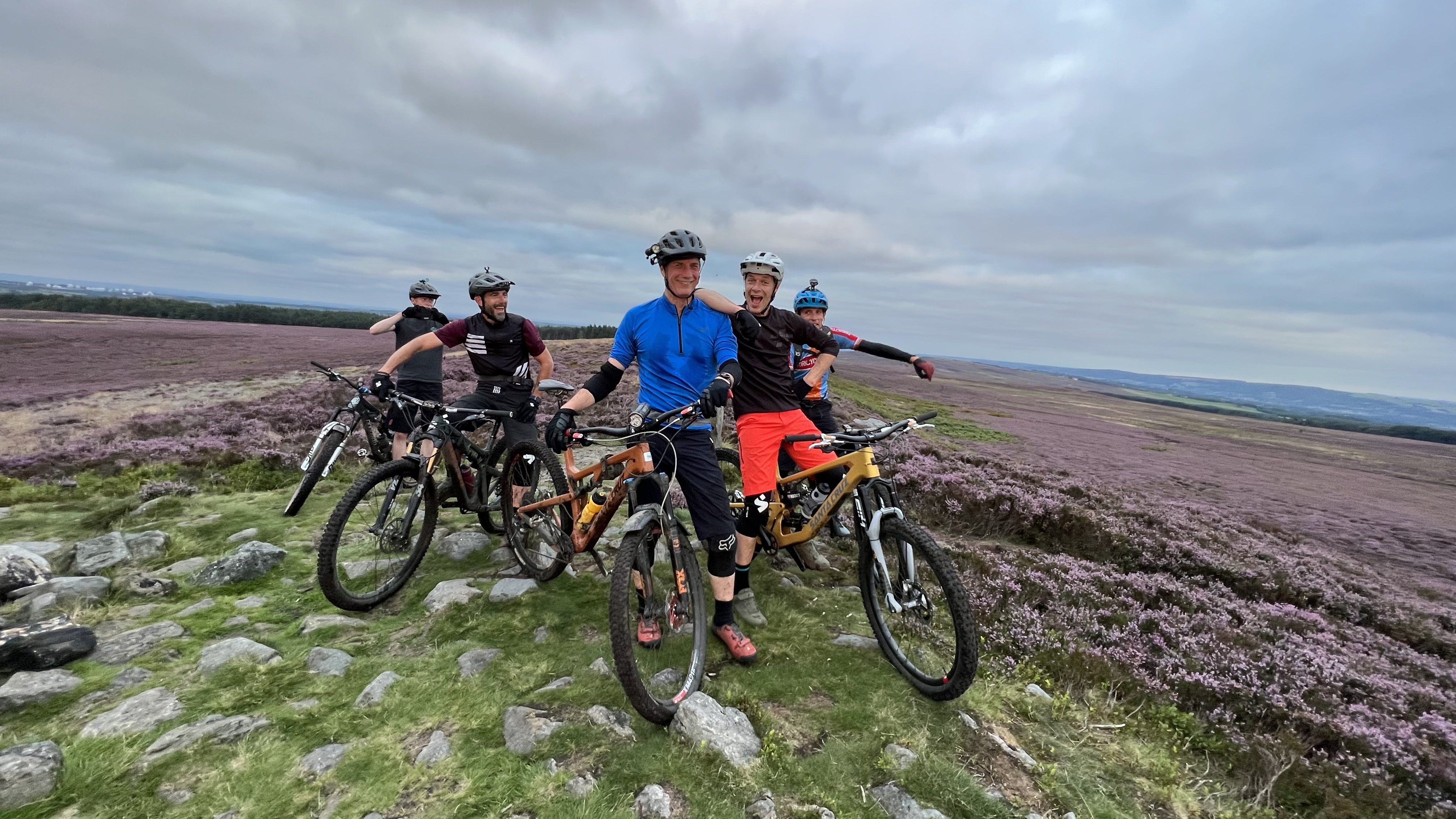
From Charlie Hatton taking the Elite DH win, Tom Pidcock powering to gold in the Elite XCO and Jack Carthy taking his 11th World Championship in the 26-inch wheeled Trials comp there’s been no shortage of top performances from UK MTBers up in Scotland.
They didn’t have it easy either. Charlie managed to go faster than the dry race runs of preceding riders in suddenly very Scottish conditions on Aonoch Mòr. Tom Pidcock had to nurse loose and slipping gears around the last three laps to stay ahead of a charging Sam Gaze. Jack only clinched another Rainbow jersey on the very last, insanely tight, edge of cable bobbin obstacle in the closing seconds of the fifth and final round of the trials competition after an uncharacteristic slip-up in Round 1.
Their performances are the results of years and years of prioritizing constant hard work and dedication ahead of the easy stay-on-the-couch option. They’ve all got stories of fighting through injury comebacks and career setbacks to get back to Gold in Glasgow too. So as far as aspirational athletes showcasing the ultimate in skill, fitness and focus they are undoubtedly inspirational icons worth celebrating.
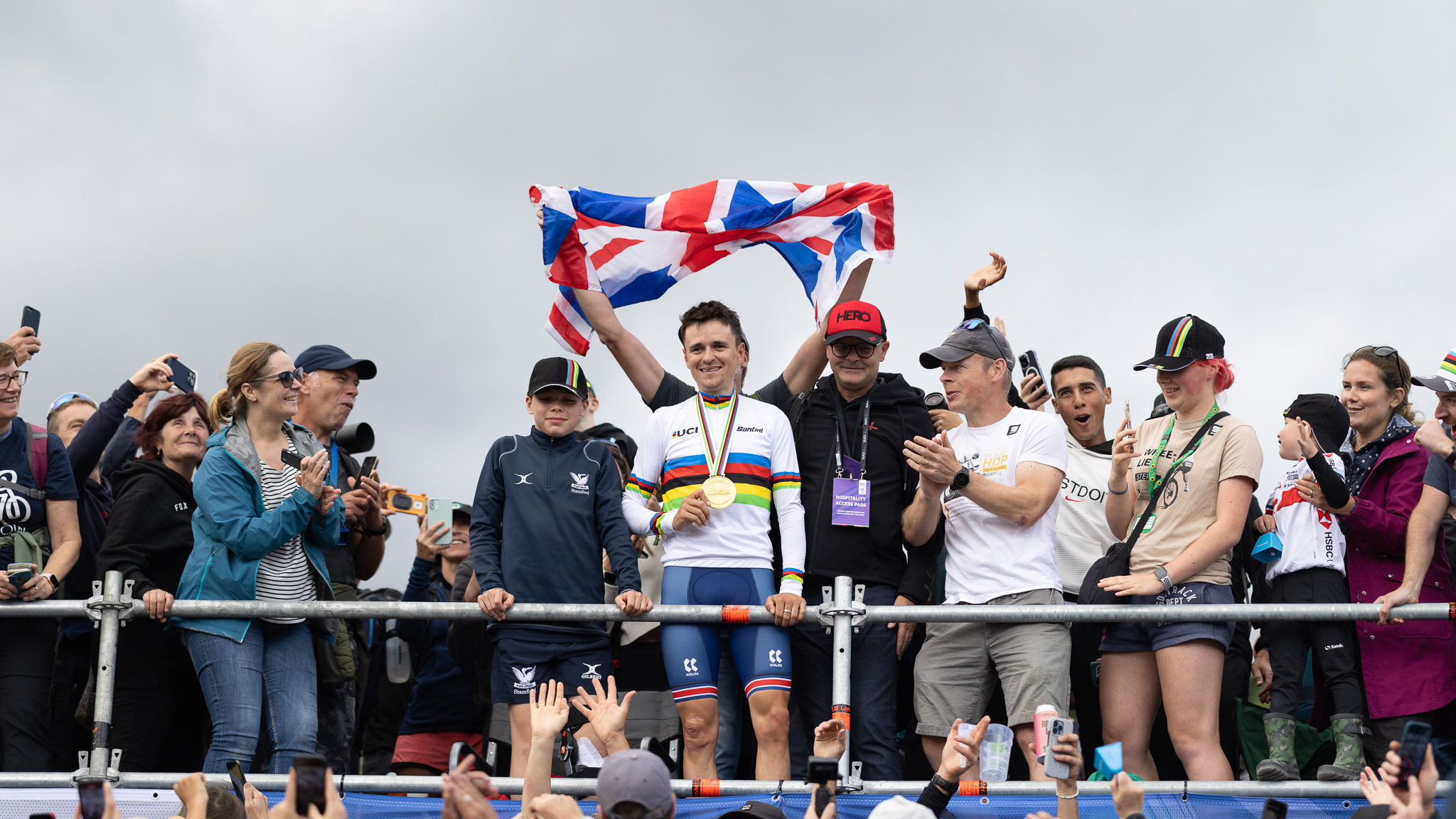
Head starts
All of these riders started from zero at some point too, but their talents soon started showing through. I can remember first seeing Tom Pidcock in a local town center road race ahead of the Yorkshire edition of the Tour De France. He’s not a big lad now, but back when he was 14 he was the unlikely urchin in a two-up attack off the front of a strong bunch of hitters. There was already a whisper on the cycling grapevine that there was a kid out of Otley who was as quick as he was cocky so we weren’t that surprised. However, when his escape partner came around solo just ahead of the bunch after a few laps most people assumed young Tom had been dropped. Then the buzz started circulating that Tom had actually left his partner and was still stealthily pulling away among the back markers. And sure enough, there he was, with that sly smile and shining eye that we’ve come to know so well over countless victories since, from World Cup, World Championship and Olympic MTB wins to World Champs Cyclocross or the top of Alpe D’Huez at the Tour De France.
So while Tom and other top riders have worked incredibly hard to become winners, they’ve all had some sort of physiological and psychological head start that makes turning up to ride that bit easier.
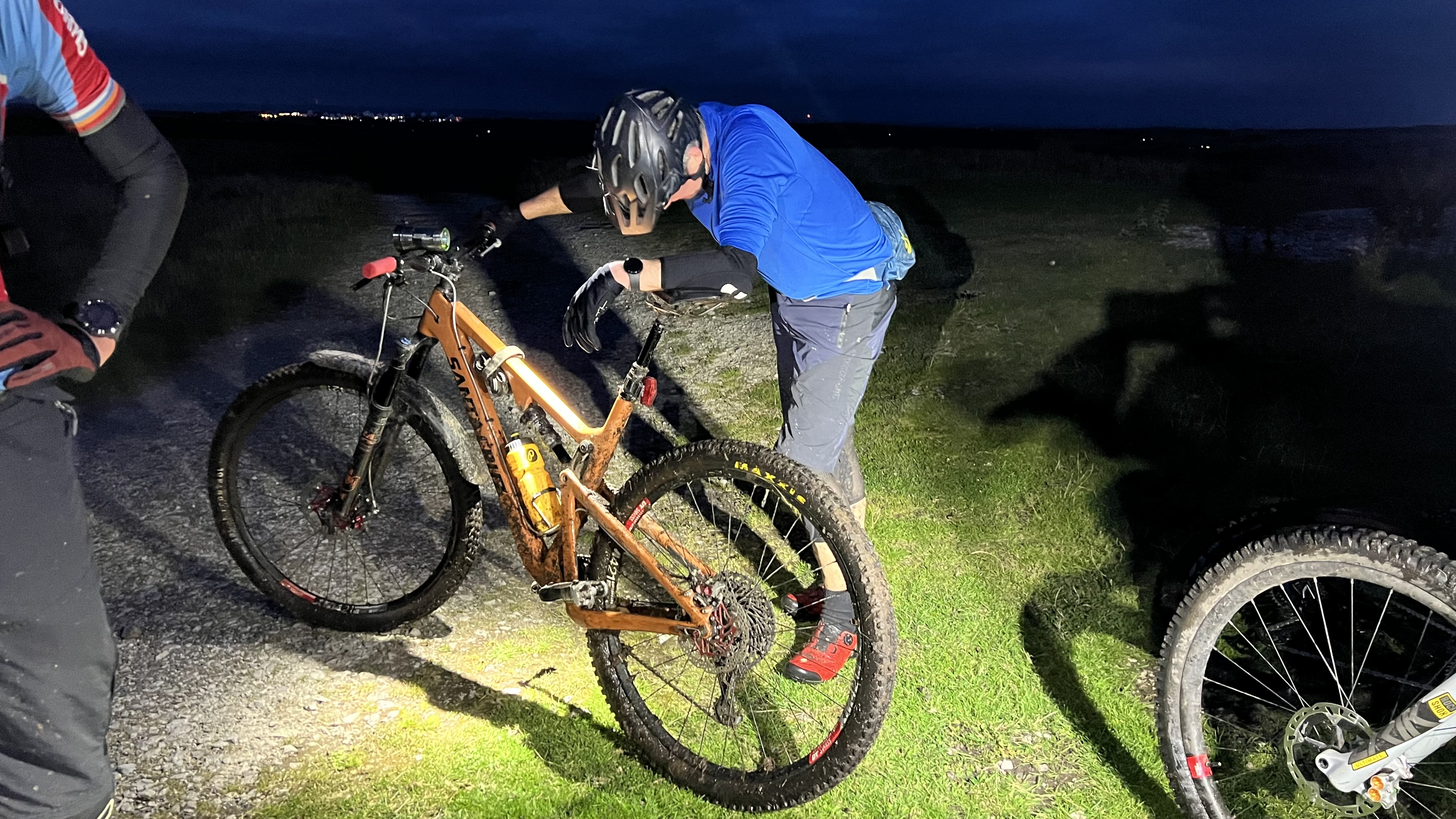
Headwinds
But what about those legends who turn up time and time again when they know they’re going to ‘lose’? The ones who make up the vast majority of every race and group ride. Heroes who are gasping for breath from the first pedal strokes of the first climb or singletrack burn up. People pushing up the first road climb of the Ard Rock Enduro with over 40km of much steeper tar and technical trail challenges ahead. Technical challenges they might have to walk, push or at best wobble down in fear while the world applauds those who’d be twenty feet off the deck and upside down at that point.
Every ride they do is not only harder than average but longer and more unrelenting. While the alpha riders chill, snack, and recover at the top of climbs or descents for a few minutes, back markers barely get a chance to put a pedal on the ground let alone refill their lungs and stomachs.
Their heads hang over bars, eyes stinging with sweat while others compose Instagram shots, and by definition, they ride everything closer to the ragged edge of exhaustion and talent. Having been in this position myself many times in decades of riding and racing - I never repeated my 1993 fun class win at the Lightwater Valley Rotary Club charity - I know how hard this is. I’ve been told I won’t walk let alone ride again after splitting my shin down the center, testing bikes in the Nevada desert and those first hills after rehab nearly broke me. And frankly, I’m not man enough to handle that kind of struggle a lot of the time, so I ride the best possible test bike I can on Thursday nights to make sure I’m at least mid-pack, not the last light on the hill.
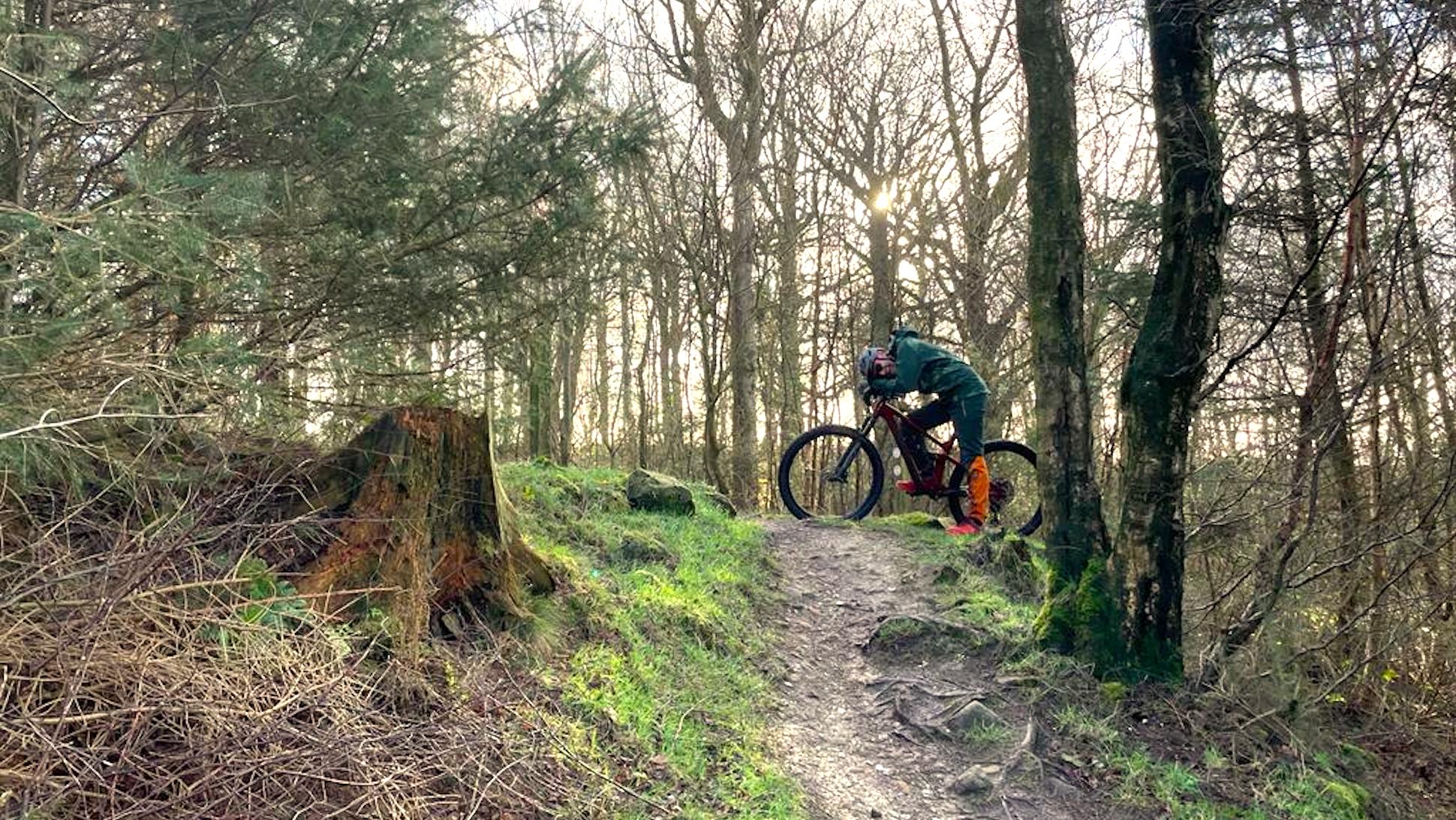
There are more prizes than 'winning'
But just concentrating on results - whether that’s World Championship podiums, Strava, or the final sprint/descent to the car park - is missing the far bigger picture. While the World’s - or even the local best - focus their lives around their riding, that rider pushing the climb or walking the descent might have an incredibly successful career or fantastic home life that the speed and skill freaks have sacrificed. They might have the potential V02 max to win the Marathon World Champs but their PE teacher put them off exercising for 30 years. Or Maybe they were incredibly successful as young sportspeople but their heads caved in with the pressure and even putting a foot on a pedal and getting physical again is a massive deal emotionally.
And that’s why I’ve shared the best hugs and finish line celebrations when sweeping up the last riders at epic events, even though trade stands are packing up and the podium presentations are long gone. And that’s when you hear the back stories about how they were the rider who was airlifted off the course two years before and who thought they never ride again. Or the person you helped lift a bike over a stile has been fighting cancer. The Rider Resilience website is full of incredible inspiring stories and my favourite part of the World Champs was the fact that it genuinely gave para-cycling an equal representation in terms of coverage and air time.
Or maybe they’re just normal people just starting their journey into riding for health or emotional reasons and they couldn’t give a shit about Strava because they can see how positive it’s been for the rest of their lives. Giving them a total, joyful escape from all the stress of normal life in total contrast to the pro racers who are more stressed about riding than anything else.
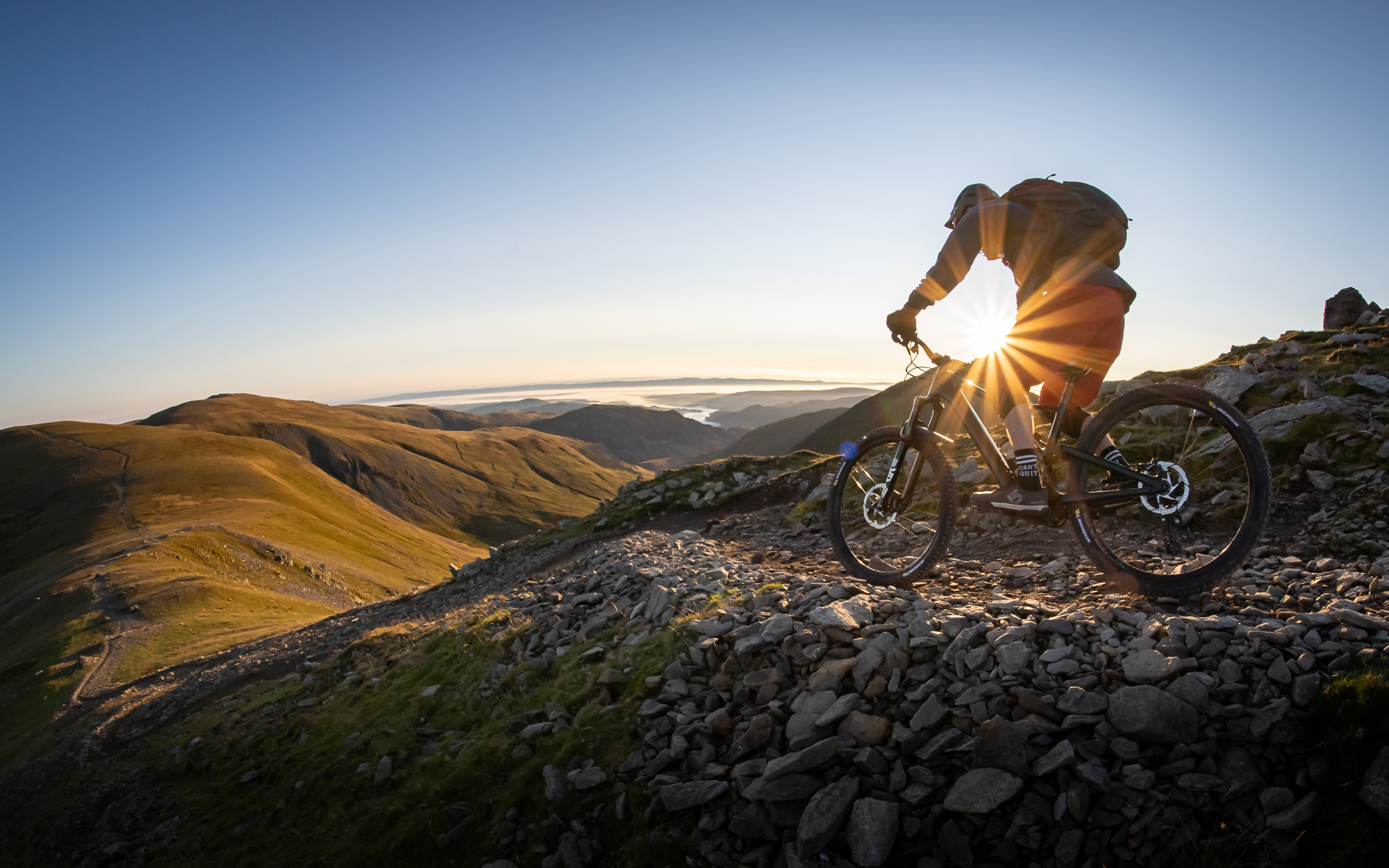
Champions of different worlds
So if you’re lucky enough to be one of those riders who finds riding a bit easier than others and who might have all sorts of real race or virtual leaderboard proof that you're a ‘strong’ rider don’t immediately judge others by those same standards. Being good at something you’re talented at isn’t necessarily strong at all. By definition, the strongest people are the ones who work the hardest at something they struggle with and still keep coming back for more. So don’t just hand out likes and follows to the world's best, realise that a lot of riders are fighting far harder, for longer to save their sanity, restore their health, or pack as much fun into a life that’s being measured in months not years. And giving kudos, a kind word of encouragement or just a nod of appreciation could be what makes them feel a champion of their own world.
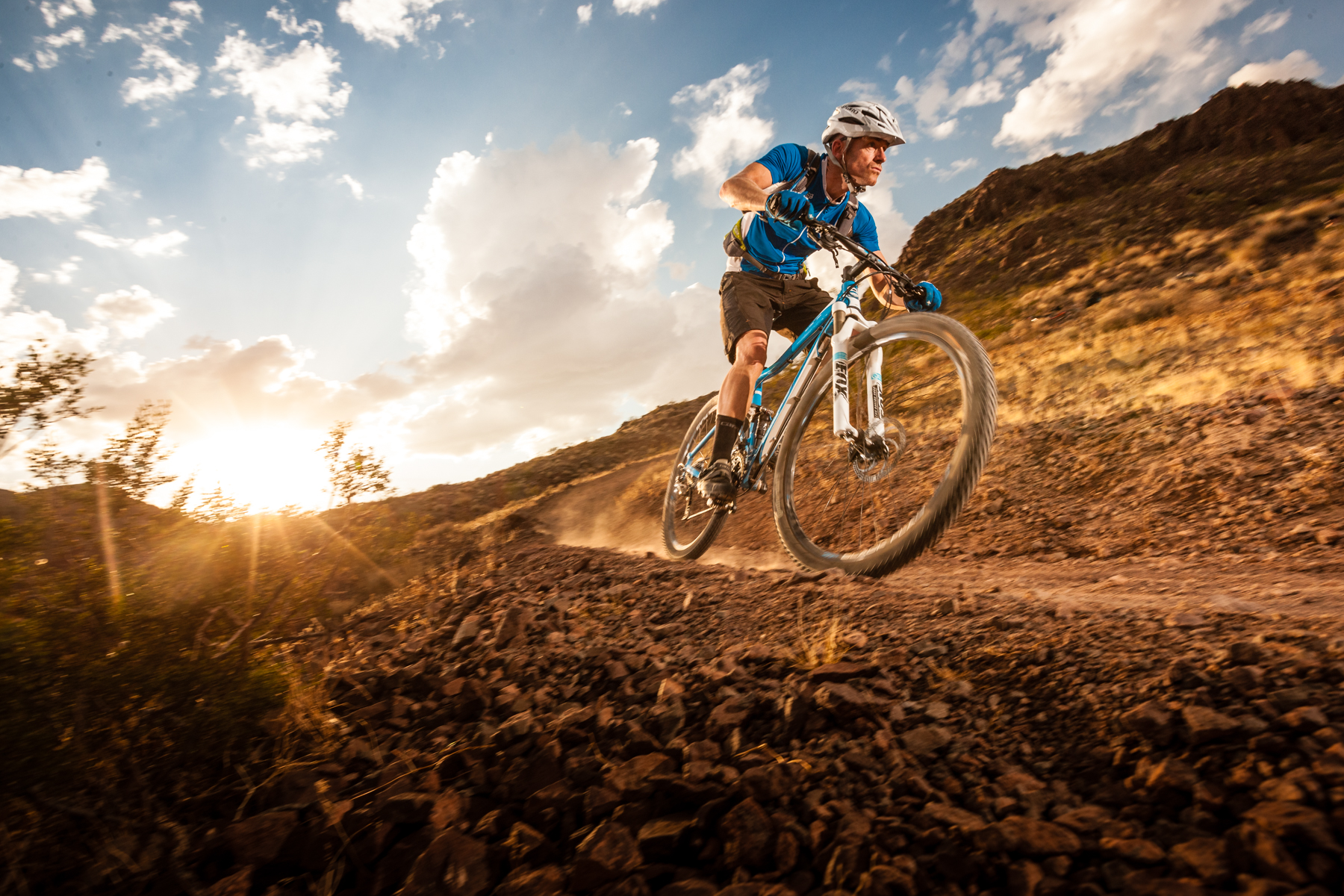
Guy Kesteven has been working on Bike Perfect since its launch in 2019. He started writing and testing for bike mags in 1996. Since then he’s written several million words about several thousand test bikes and a ridiculous amount of riding gear. He’s also penned a handful of bike-related books and he reviews MTBs over on YouTube.
Current rides: Cervelo ZFS-5, Specialized Chisel, custom Nicolai enduro tandem, Landescape/Swallow custom gravel tandem
Height: 180cm
Weight: 69kg
